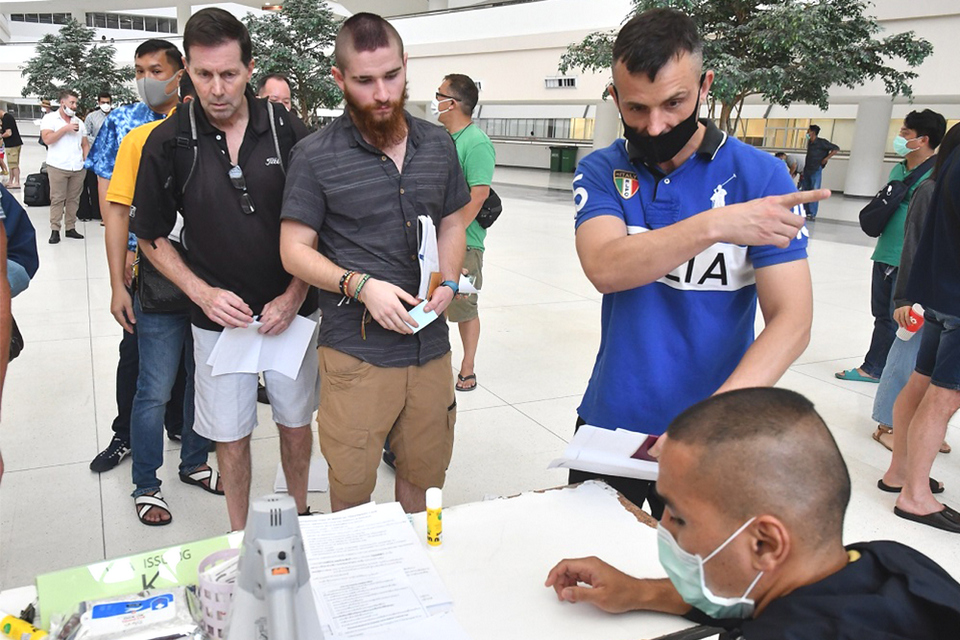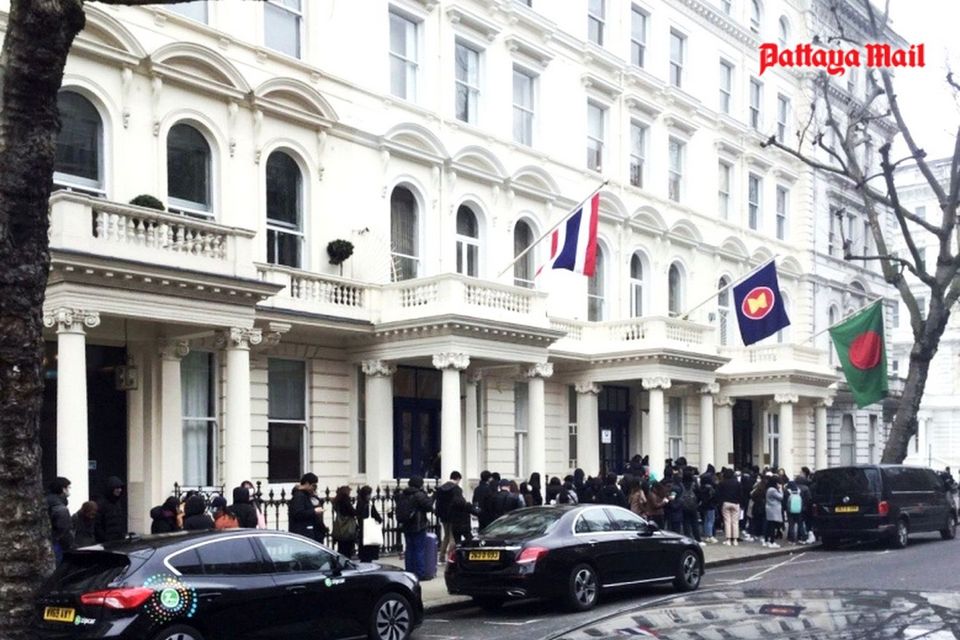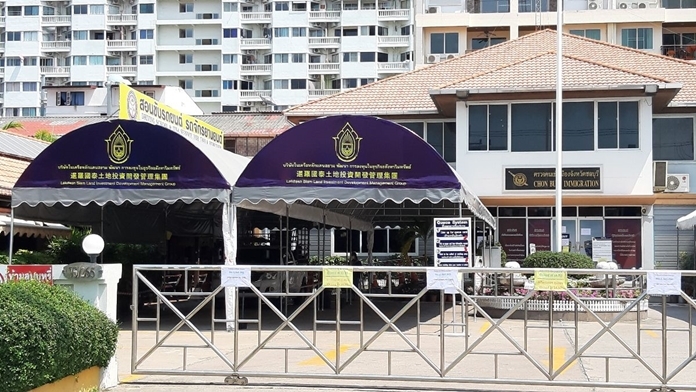
Many Thai embassies, particularly those based in the EU and the UK, are revising their instructions to foreigners wishing to come to Thailand. The updates fall into two distinct time periods this year: May 1 to September 30 and October 1 onwards.
May 1-September 30
The Special Tourist Visa (STV) is being completely withdrawn and the final end-date for flyers is July 2. Extensions once here are possible up to September 30 but not afterwards. The STV was introduced last year to cater for “snowbirds” and other tourists wanting a Thai vacation lasting up to nine months. It was never popular numerically and was heavily bureaucratic, requiring for example general medical insurance on top of Covid-19 cover. It might have proved more popular if travel bubbles and charter flights had been introduced, but frequent coronavirus flare-ups in Thailand and other Pacific-rim countries prevented that.
According to the Thai embassy in Bern, visas for medical tourists have now been suspended until further notice. Some other embassies, but not all, have quietly dropped medical tourism as a valid reason to request entry to Thailand. In normal times, about one million tourists a year have come under this category, the biggest single catchment being gender-reassignment and plastic surgery. No formal announcement has been made about this apparent visa cancellation, but is likely linked to the latest Covid-virus clusters plaguing Bangkok in particular.
Another cancellation is the visa-on-arrival which has been suspended until September 30. This visa covers 18 countries, China and India being the main sources, who were entitled to a stay of 14 days (plus 7 days extension) in pre-Covid times on payment of 2,000 baht on arrival in Thailand. Instead they have been told to apply for visas in their own country. There were only four European countries included in the visa-on-arrival arrangement: Bulgaria, Cyprus, Malta and Romania.

The visa exempt category – 58 countries including the UK, the US and most of Europe – traditionally entitled to 30 days on arrival has survived the axe in this time zone. But their stay has been extended to 45 days because of the recent re-introduction of a two weeks’ mandatory hotel quarantine on all arrivals (whether vaccinated or not) required by the Thai authorities. The visa-exempt category was formerly very popular with short-stay tourists, but is now expensive because costs include health checks prior to departure, compulsory Covid-19 insurance and an isolated two weeks’ sojourn in a Thai hotel.
All other visa categories remain more or less the same in the period before the end of September. Tourists, students, retirees, foreigners with Thai families, permanent residents, business people, Elite visa holders and condominium owners are all eligible to apply for a certificate of entry from the Thai embassy in the country of departure. The documentation required varies according to the specific visa required.
October 1 onwards
All depends on the virus, but Thai embassies are outlining possible developments.
Quarantine relaxation
The plan is to allow foreign tourists and expats who have been fully vaccinated to enter Thailand to visit one of several Sandbox destinations which include Pattaya and Chiang Mai. This assumes that 70 percent of the local host population in receiving areas has been vaccinated by the end of September. The pilot Sandbox is Phuket which is scheduled to open on July 1, again provided a mass vaccination program on the island has been completed by the end of June. Assuming the Sandboxes actually see the light of day, the required documentation for entrants has not yet been stated.
The end of general medical insurance?
The termination of the STV (see above) means that general medical insurance – as opposed to specific coronavirus cover – will mostly have disappeared from embassy visa requirements. The one exception will be those applying for any kind of visa based on retirement, whether type “O” or “OA” or “X”. Unless the issue is addressed, they will continue to need general medical cover to the tune of 400,000 baht (inpatient) and 40,000 baht (outpatient) on top of Covid-19 cover. Whether this idiosyncratic logic is a deliberate attempt to squash retiree applications (but no others), or a simple oversight, remains to be seen.

90 days report
The unpopular three months’ address reporting for expats and long-term visa holders is likely to be cancelled. It might be replaced by a computer app. which will record the relevant details and require updating only if the foreigner moves house. Such a system seems to work well in Cambodia.
Encouraging the rich
The government has set up a top-notch committee to recommend changes to immigration law from October. It is due to report in June. Leaks so far suggest there will be a new set of rules for the super-rich and those with special talents. There will likely be an expansion of the four-year Smart visa to include more digital nomads, extra bonuses for those holding the more expensive Elite visa options and the right to own land/property (not just condos) costing at least ten million baht in nominated and newly built housing estates in specific areas. The very wealthiest investors could even one day achieve permanent residency. Provided, of course, they keep on investing.





